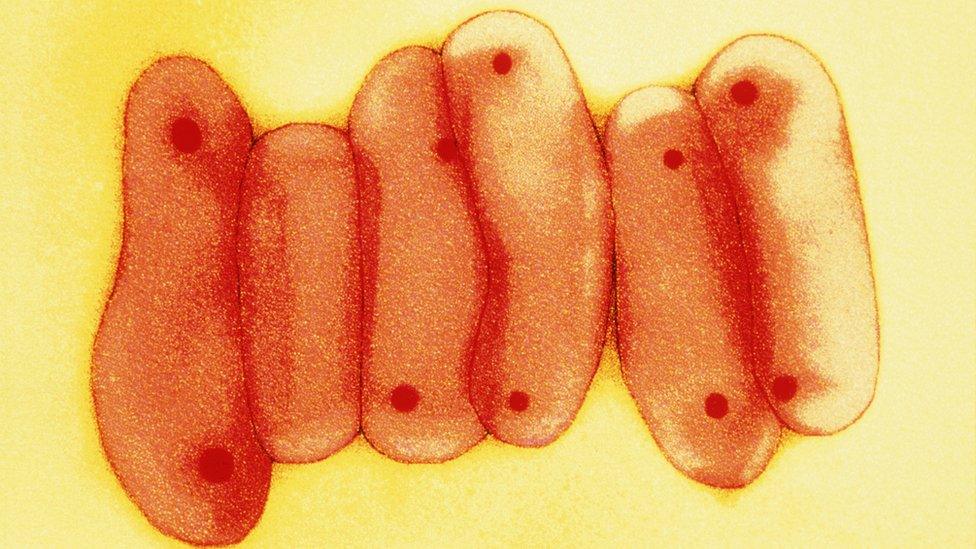Care home residents diagnosed with latent TB
- Published

TB screening is being carried out at The Grange care home for all residents and staff
Dozens of residents and staff at a care home have been diagnosed with the latent form of tuberculosis (TB) after a nurse was found to have the disease.
Tests are being carried out at The Grange in Gloucestershire to see if any of the people diagnosed have developed the active form of the infection.
Public Health England (PHE) said the nurse had since been treated and was no longer infectious.
No-one from The Grange was available for comment.
Latent TB is an inactive and non-infectious form of the infection, meaning people are carrying the bacteria without becoming ill or spreading it to others.
PHE said results of tests to see if any of the residents or staff had contracted full-blown TB were expected by the end of the month.
Dr Bharat Pankhania, from Exeter University's medical school, said it was "not unusual" for such an incident to have happened.
"About a third of the world population will have encountered TB, and these days we have the tools to diagnose latent TB and we can effectively treat it."
A family member of one of the residents, who asked to remain anonymous, said after the "initial shock" they had been "very reassured by the processes put in place by the home and the medical experts dealing with this".
PHE said the first round of screening of residents and staff identified a "higher than expected number of positive tests" for latent TB.
As a result it has advised the screening is extended to additional staff at the home near Eastington.
"All those who tested positive for latent TB will have a chest X-ray and be clinically assessed to see if they have the active disease," said Dr Toyin Ejidokun, from PHE.
The body will also consider treating the latent disease with a course of antibiotics as a precautionary measure and prevent them from developing active TB disease in future.

Tuberculosis

TB is a bacterial infection spread through inhaling tiny droplets from the coughs or sneezes of an infected person
It mainly affects the lungs, but it can affect any part of the body, including the abdomen glands, bones and nervous system
The most common symptoms of TB are a persistent cough for more than three weeks, unexplained weight loss, fever and night sweats
TB is difficult to catch and you need to spend many hours in close contact with a person with infectious TB to be at risk of infection
It can be fatal if left untreated - but can be cured if it's treated with the right antibiotics over a course of six months
- Published2 September 2019

- Published25 June 2019

- Published24 March 2018
